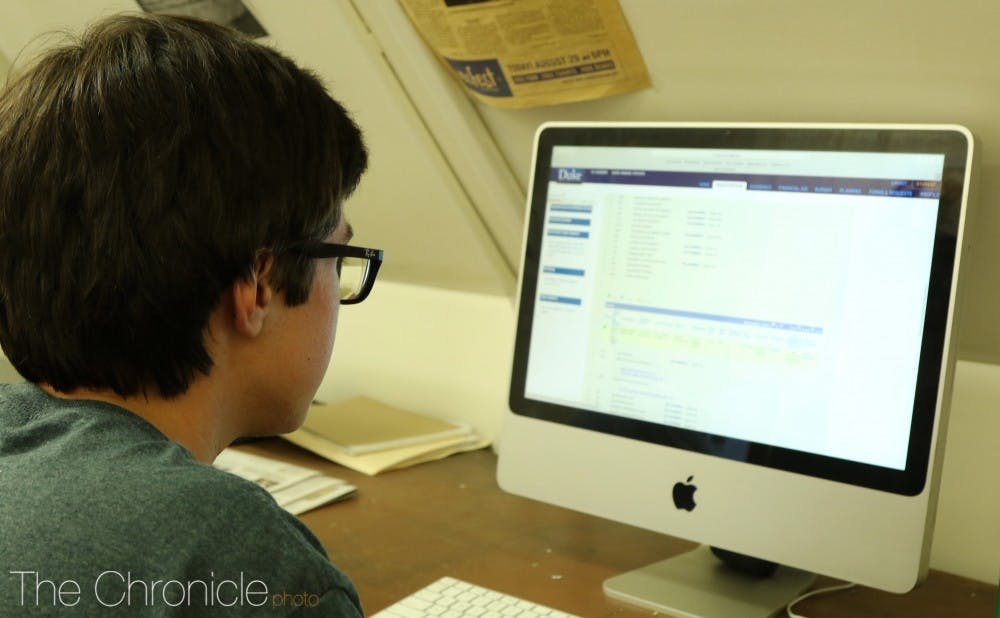With registration looming around the corner, the reality of having just one more semester left is starting to sink in. Bookbagging has always been a tumultuous process—full of contemplating “what-if’s” as I spend hours scrolling through DukeHub and asking for recommendations from friends. And as my time here grows closer to an end, so does the opportunity to explore freely.
Now, I see classes as an opportunity to juggle multiple interests. But it took me longer than I would’ve liked to expand my bookbag. During my first two years at Duke, I was focused on nabbing as many requirements as I could for my major. I brushed off suggestions from my advisor—"Why don’t you take a class in Cultural Anthropology? Or another field that you haven’t tried before?”— as I opted to instead continue grinding through a full STEM course load.
Like many students, I fretted over my employment prospects. Without a prior computer science background, I felt incredibly behind. What was the point of forking over nearly $80k annually if I couldn’t snag a job?
Being competitive meant cramming as many STEM classes as possible. In one of my semesters, I had linear algebra in the morning; statistics right after; and then an hour break, before begrudgingly dragging myself to a computer architecture class.
But rather than catching up, it felt like the gap only widened. I dreaded going to lecture. I had no idea what was going on. And, frankly, I didn’t care that I was lost—in fact, I didn’t actually care about anything I was learning.
I thought this misery was normal. It wasn’t until I finally had the courage to break out of the STEM bubble, that my entire outlook on Duke classes shifted. For the first time, I left class invigorated. Rather than skimming my readings, I poured over them and searched for more. The spark of intellectual stimulation had finally appeared.
Students often poke fun at humanities degrees, but my philosophy and ethics class have been the most rewarding. These are the places where my opinions have been challenged and re-shaped; my logical reasoning refined. I came to Duke for the people around me—and the intimate debates about life in these classes have had the biggest impact in my education. When I leave, it is the insights about justice and morality will shape me; not the finer workings of mathematics.
The quality of my Duke experience has increased immeasurably since I began choosing a broader range of classes. It makes a much bigger difference than you’d think; after all, each semester is marked by what we commit to—and our schedules are defined by our classes. So, don’t underestimate the importance of bookbagging.
It’s a messy, stressful process. But I hope this short list of classes can serve as a starting point. Not all of them are offered this semester (but if not, I promise that it’s worth to check again in the fall). And even if you find these offerings boring, I hope you’ll still take the time to consider something new:
PHIL 353: Neuroethics (Scott Huettel & Walter Sinnott-Armstrong)
AMES 335: Chinatowns: A Cultural History (Eileen Chow)
ECON 370: Global Capital Markets (John Caccavale)
POLISCI 160D: Introduction to Security, Peace and Conflict (Peter Feaver)
GLHLTH 306: Global Health Policy (Gavin Yamey)
Felicia Chen is a Trinity senior. Her column runs on alternate Wednesdays.
Get The Chronicle straight to your inbox
Signup for our weekly newsletter. Cancel at any time.

